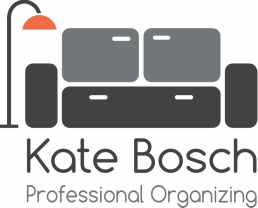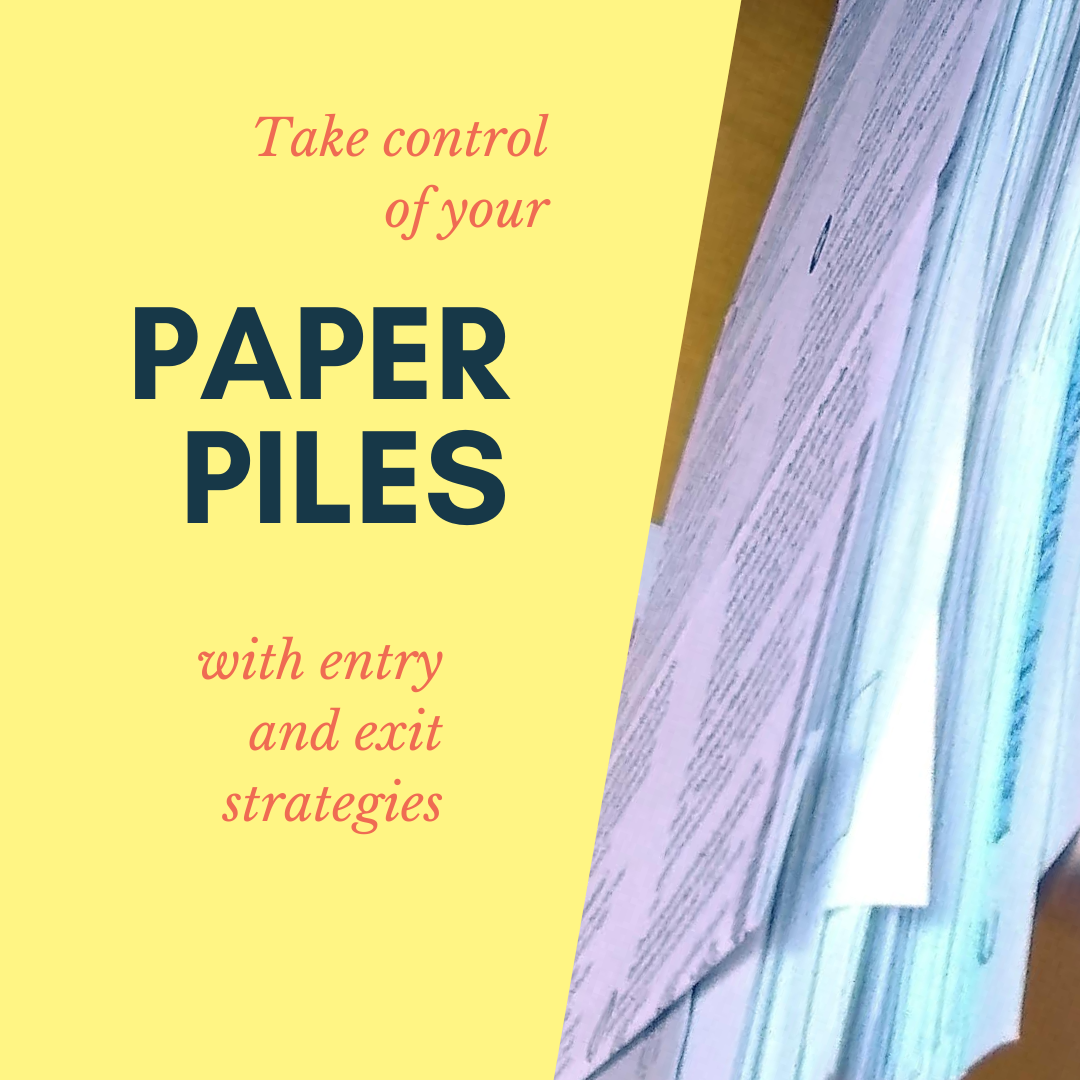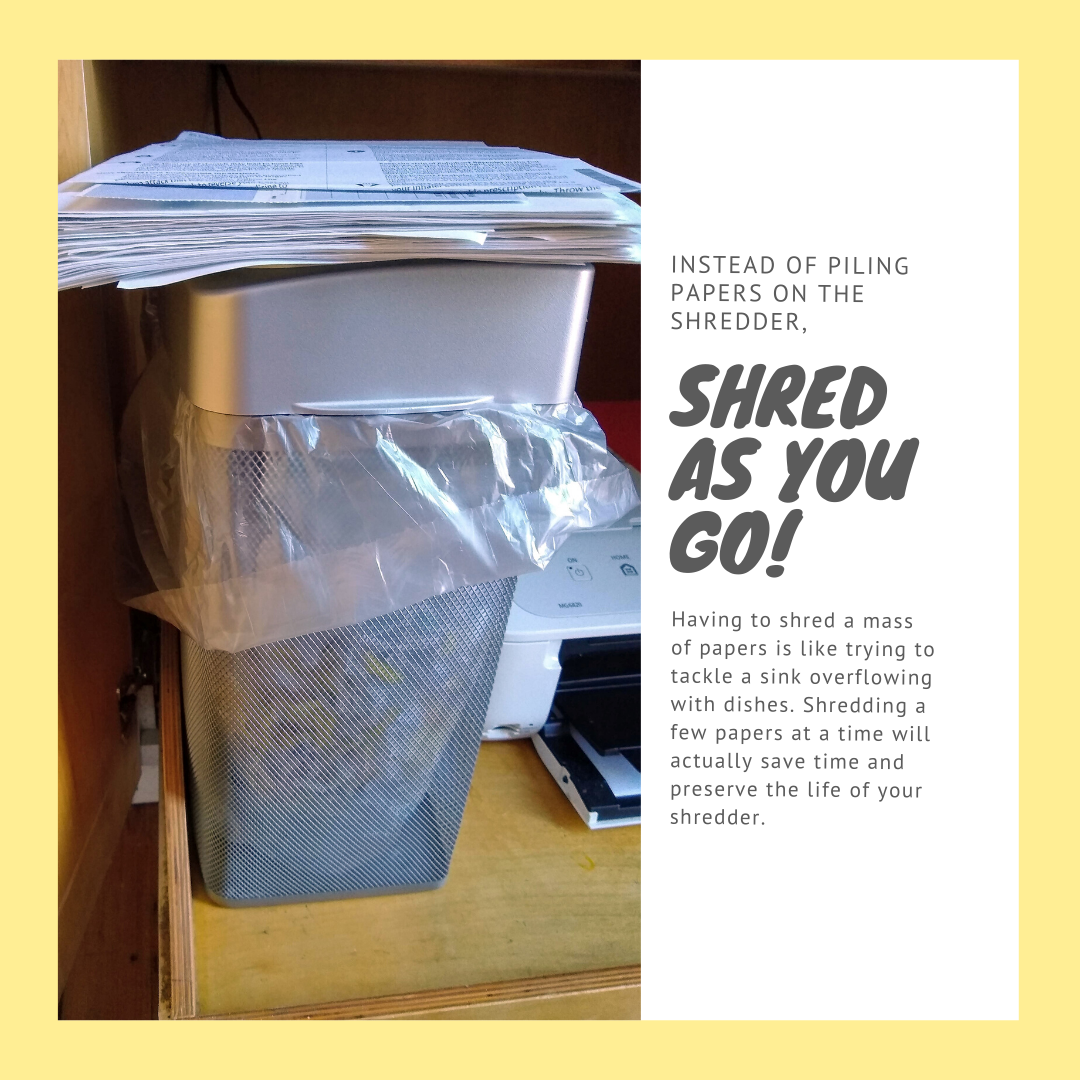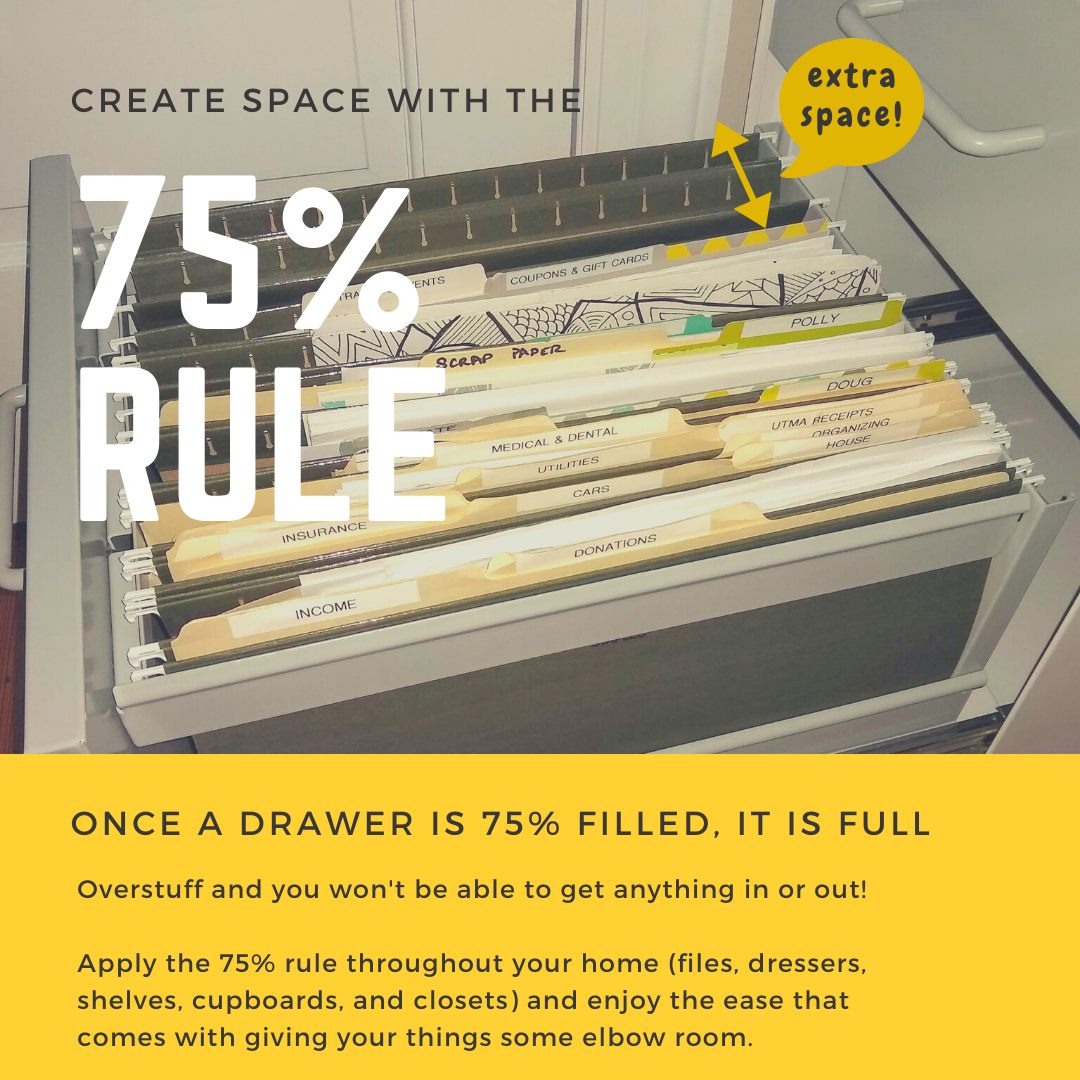|
Paperwork, filing, taxes -- there must be some people who enjoy dealing with these, right? I’m not one of them and I suspect you aren’t either. Unfortunately, with tax day coming up next month, piles of paper are a reality for many of us. What are the top causes of this paper pileup?
What are the solutions to these problems?
If you don’t have predetermined rules for what papers to keep, you’re apt to avoid processing paperwork simply because you don’t know what you’re supposed to do with it. The symptoms of this indecision include an overflowing In Box, piles of (mostly unopened) mail that you dread having to confront, overstuffed file drawers, and additional file bins or banker’s boxes strewn about the house. Your Entry Strategy to solve this problem is to establish a document retention schedule that will guide you on what to keep and for how long. Consult your accountant and legal advisor for specific recommendations, but a quick search will direct you to plenty of sites offering schedules that you can follow. For any retention schedule, these are the four basic categories that you’ll have:
Now that you know what to keep, what’s your Exit Strategy for the rest? Shred it? Sadly, I often see shredders piled high with papers or surrounded by boxes of papers that need to be shredded. This is the paper equivalent of a sink full of dirty dishes. The more dishes or papers you stack, the harder it’ll be for you to get it all cleaned up. Instead, shred as you go. Dispose of papers on a regular basis and avoid accumulating a pile that’ll overheat your shredder. The other hangup with shredding is that shredded paper cannot go in your recycling bin in part because shreds can’t be baled, which is how paper is transported for recycling. To go really green with your shreds, you can actually compost them. If you don’t compost at home, bring it to a composting center or have it picked up by a compost service. If you know yourself well enough to know you won’t shred as you go, then outsource your shredding. Replace your shredder with a small bin. When the bin is nearly full (not overflowing!), make an appointment on your calendar (Yes, actually schedule it with yourself.) to bring it to a local on-site shredder or to a store such as Staples or UPS that offers a lock box for shredding. Now that you’re empowered to set up your paper Entry and Exit strategies, go ahead and tackle those piles! For guidance on setting up your filing system, check out my blog about the ART of paperwork. *Some guidelines recommend keeping tax returns forever, not just for 7 years, and some recommend keeping them only 3 years. I prefer to err on the side of caution. Check with your tax professional. BONUS: The 75% Rule
2 Comments
3/5/2021 12:19:34 pm
Thank you for mentioning how you should consider outsourcing your shredding if you do not think that you will be able to shred paper on a regular basis. My cousin has been interested in opening an accounting business this fall and needs to find a way to securely dispose of irrelevant contracts but may be too busy training and hiring new employees. He should rely on a professional that can help ensure that his documents are regularly shredded.
Reply
3/6/2021 11:58:44 am
Yes, I definitely recommend that your cousin outsource his shredding. There are lots of options for secure document destruction (stores with locked boxes, shred onsite while you watch, or even shredders that come to you), so he can find one in his area that has the security that meets his needs. It's such a boring job and home shredders are really best for small, intermittent shredding jobs of a few papers at a time.
Reply
Your comment will be posted after it is approved.
Leave a Reply. |
Categories
All
Archives
July 2024
|
|
Copyright © 2024 Kate Bosch Professional Organizing LLC
|
Providence, Rhode Island | 401-699-4878
|




 RSS Feed
RSS Feed